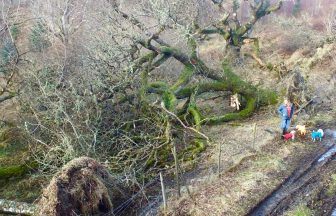Autistic people and their families have been left “completely stranded” during the coronavirus pandemic, a new report has said.
The National Autistic Society said the responses they received from 4232 autistic people and their family members shows that Covid-19 and the lockdown deepened well-established existing inequalities.
Autistic people in June and July were six times more likely to have low life satisfaction and seven times more likely to be chronically lonely compared to the general public, the report said.
It found that nine out of ten autistic people worried about their mental health during lockdown and one in five family members had to reduce work due to caring responsibilities.
The disruption, uncertainty and pace of change triggered huge levels of anxiety and for some was made worse by the withdrawal of support from social care, education and mental health services.
The research was led by the National Autistic Society, as part of a project funded by the Pears Foundation, with a number of other autism charities supporting it including Ambitious about Autism, Autistica, Scottish Autism and the Autism Alliance, which is a coalition of 17 autism charities.
The charities are calling on all four governments in the UK to create an action plan to protect the 700,000 autistic people in the country, and their three million family members and carers, from possible future waves of the virus.
They say this would cover social care, health, education, transport and shopping.
Caroline Stevens, chief executive of the National Autistic Society, said autistic people and their families have been struggling to get the care, support and understanding they need for years, with things made even harder by coronavirus.
She said: “If you’re autistic, small changes and unexpected events can trigger intense anxiety.
“So, the disruption and pace of change during the coronavirus outbreak has been incredibly hard.
“On top of this, support from some public services disappeared overnight, leading to impossible pressures on families and many feeling abandoned.
“The impact is stark, with nine in ten autistic people telling us they’ve been worried about their mental health during lockdown and 85% saying their anxiety has increased. We’re worried many could be at serious risk of crisis.
“The inequalities that autistic people and their families face aren’t new. We’ve been highlighting them for years. But coronavirus has laid them bare and deepened them.”
Ms Stevens said the Government must take “urgent action” to make sure the needs of autistic people and their families are better met in the event of a future wave or future lockdown.
A Government spokesperson said: “We recognise that this is a challenging time for autistic people, particularly given the disruption to routine which the lockdown has caused.
“We are committed to ensuring autistic people have the best possible quality of life, and the safety and wellbeing of vulnerable children has always been a priority.
“We…provided extra funding for autism and learning disability charities, including the National Autistic Society, to increase access to online support during the pandemic.”
Follow STV News on WhatsApp
Scan the QR code on your mobile device for all the latest news from around the country





























